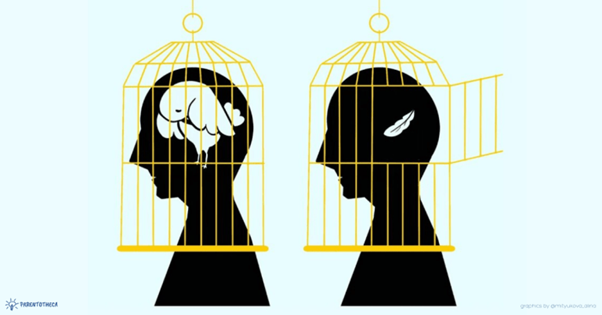Is being talented your problem?
- Frank Doogan
-9.jpg/v1/fill/w_320,h_320/file.jpg)
- Feb 11, 2023
- 3 min read
Updated: Dec 24, 2024
The word ‘talent’ has its origin in a measurement of weight, and was frequently used as a measurement of silver or gold. In other words, a talent was a common measure for money.

There is no doubt that talent has value - but apparently it has much less value if you believe you have it. 😊
Quite seriously though, life can be quite tough if you believe talent is a fixed value.
Partly because we like to measure things, and a world with fixed quantities is an easier one to live in, we have a belief that people have talents, and those talents are fixed quantities.
According to Carol Dweck, Professor Psychology at Stanford University https://en.wikipedia.org/wiki/Carol_Dweck believing that you have talent creates a fixed mindset, meaning you do not believe you, or others, can grow capacity (talent is a fixed quantity). Is being talented your problem?
Having a belief that talent is a fixed quantity makes those people who have it very vulnerable (what happens if you fail?), and makes people who think they don’t have it feel underpowered and much less capable of contributing towards whatever solutions their society, their family, their school or their company needs.
*Research by Dweck, Murphy and McPherson referenced in https://youtu.be/gDeUMy-IMmE Carol Dweck & Angela Duckworth: Individual & Organizational Mindset | 2022 Future of Work Conference reveals that organisations which believe in talent, or a fixed mindset, tend to be more internally competitive, less innovative and less enjoyable to work in than organisations which have a growth mindset.

I am sure you hope there is a better alternative 😊
Let’s dive into some definitions and see what we can learn.
A fixed mindset is a belief that you have a particular trait that is fixed in terms of its extent or quality.
You will recognize this in some managers, parents and teachers who define people as smart, bright, clever, or talented - all definitions of a state, not an attitude. If this is delivered as a message to you from a young age, you come to believe that this is more related to who you are, and less to how hard you try to become it.
When you fail (as we all must, unless we are not trying difficult things) your sense of your personal value and identity is threatened. An outcome of this is a tendency to avoid difficult things, and/or to become very highly competitive so you reduce your chances of failing.
This is not a positive world for you, your family, your friends, or your colleagues.
An alternative, a growth mindset, has a belief that any particular trait is something that can be improved and could be improved by, for example, the application of strategies, the use of AI, the use of curated software, and the inclusion of mentoring and support from family, friends, tutors, and colleagues.
You will recognize this in some managers, parents and teachers who look for learning opportunities in failings: ‘What can we learn from how we did that?’ Or describe the task result or ambition displayed: ‘Great. I so like how you kept at it till you solved it’.
Growth mindset is not something confined to how an individual thinks; it is very much about the culture of the family, school, or workplace in which individuals live and work.

The research referred to earlier* has concluded that companies with fixed mindset tended to be less collaborative, more structured, less innovative, and less supportive of group members who took a risk and failed. Companies that displayed these characteristics also displayed less integrity.
So what does that mean for us?
We can re-examine the limitations that apply to a highly competitive talent model and think about what we want as people and society. Do we want one in which potentials are developed by groups who work in harmony (and produce more as a result), or do we want a talent-driven leadership model in which information and power is defined by competitive leaders?
Or, are we looking for a more elegant model in which we, AI, our colleagues, our family, or our children feel valued for their attitude to the work they do and their contributions to the group?
Tough question 😊
Finally, if you want to explore study and work software, we update these monthly for students, tutors and parents; ; if you want brain and EQ programs, we also have monthly updates for you.
You can increase your skills and knowledge – but only if you believe you can. 😊
Contact us if we what we do seems useful for you – frank.doogan@traintheteacher.org +852 92791395
Click to see our testimonials https://hk.myittutor.org/testimonials




Comments